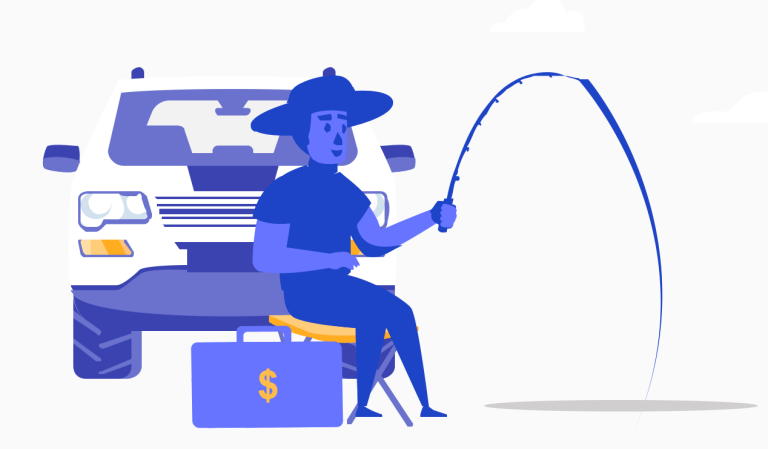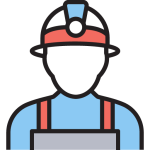FAQs
What about my job?
Your job's safe
There are very strong legal protections so making a claim can’t impact your employment.
Your employer is told about a claim, empowering them to fix issues (like provide PPE in future).
Claims are generally paid out by state insurers, reducing impacts on your employer. Some state schemes mean there’s limited or no insurance excess or premium rises because of claims either.
What will it cost me?
If you meet our eligibility requirements and accept our NWNF terms, $0 out of pocket costs! Your legal and medical costs are covered and paid from settlement proceeds (or in some cases, by the government).
Why do I need another hearing test?
The rules require you to have a special form of hearing test to measure your hearing loss levels. These are generally only done if a lawyer requests them on your behalf, so it’s unlikely you’ll have had one before. Sometimes we may be able to use your old hearing test as a reference point, but doing so may come with some limitations. Our team will discuss with you.
How much could I get?
It depends, particularly based on how much hearing loss you have and when you finished noisy work. Successful claims get anything from free hearing aids, to free aids & $25,000+ cash
How long does it take?
It varies depending on your claim. As a general guide, you should know within ~4 months, but sometimes backlog with the insurers/ENT specialists can push this out to 6-12 months or potentially more.
What do I have to do?
Easy:
(1) Complete our Eligibility Check.
(2) Get a hearing test to see how much hearing damage you have.
Who’s eligible?
Successful claims commonly come from these industries:
Industry not there? You might still qualify! Click here to find out
Common Misconceptions


You could be missing out
Would you mind if you missed a paycheque?
Hearing damage can be a cost of the job. Claims compensate people for that.
~5,000 Aussies make successful claims every year. And State insurance schemes reduce impacts on your employer.
- Hearing damage can be a cost of the job. Claims compensate people for that
- ~5,000 other Aussies make claims each year.
- State insurance schemes reduce employer impacts

You don't need to be 'deaf' to make a claim
1 in 6 Aussies have some hearing loss
Can’t hear mates at the pub? Need the TV volume cranked? Some hearing loss is pretty normal.
Eligibility isn’t just for people who are ‘completely deaf’
Can’t hear mates at the pub? 1 in 6 Aussies have some hearing loss. Eligibility isn’t just for people who are ‘completely deaf’



Set yourself up for the future
As we get older, the impacts of hearing loss can get worse
Successful claims get you cash now, and can unlock free hearing aids.
You’re all set for the future you want!
What's the process like?
Use our Eligibility Check to figure out whether you’re eligible for our No Win No Fee support. Once completed, we can start the process for you, including accessing legal and medical experts to help out where needed (with no out-of-pocket costs to you)
We set you up with a hearing specialist to assess whether you have IHL (hearing loss). We generally work to pay the costs of this, so there’s no out-of-pocket expense to you
We work with legal experts to do the leg work for you, manage your claim, and help you secure the compensation you’re entitled to. The value of a claim is linked to how much hearing loss you have.
If your claim is successful, you’ll be paid cash and secure access to free treatment and hearing devices
We work with legal experts to do the leg work for you, manage your claim, and help you secure the compensation you’re entitled to. The value of a claim is linked to how much hearing loss you have.
If your claim is successful, you’ll be paid cash and secure access to free treatment and hearing devices
Who are we?
Experts, on Your Side
- Strategic thinkers, helping you get the best outcome
- Specialists in helping clients access their rights & entitlements
- Decades of combined experience, and an outstanding track record of success
We want to use our extensive expertise to help you with your potential hearing loss claim.
Common Questions, Answered
How much can you get for industrial deafness compensation?
Compensation for industrial deafness varies based on several factors. You need to be Eligible to make a claim. If you are, your level of deafness, State, and last day of work impact your entitlements. As a general guide, entitlements range $700 to >$2,000 per 1% of eligible hearing loss.
Based on recent estimates and available data, average cash compensation claims for industrial deafness in Australia have an approximately value of ~$18,850 in 2023.
If you have work-related hearing loss, you can use our Entitlement Estimator to get you a more detailed estimate of your potential entitlements.
How many people make industrial hearing loss claims each year?
About 5,000 claims are made each year, receiving over $40m in total compensation payouts. Free tools like our Eligibility Checker can be used to help figure out likely eligibility and entitlements for those who haven’t claimed.
Am I eligible for hearing loss compensation?
You might be eligible for industrial deafness compensation if you have hearing loss from working in a noisy job in Australia. About 5,000 claims are made each year, receiving over $40m in total compensation payouts. Complete our Eligibility Checker and we’ll let you know if you’re eligible for our claims management and No Win No Fee support to make a claim and potentially of your own
How much hearing loss do I need to claim industrial deafness compensation? My hearing's not that bad
The exact % of hearing loss needed to access compensation depends on several factors, particularly the State your noisy work was based in.
Many people have sufficient hearing loss to receive IHL compensation — you don’t have to be completely ‘deaf’. Use our Eligibility Checker or our Hearing Loss Guidance to get a better idea of levels of hearing damage.
How much noise do I need to have been exposed to?
Different people can sustain hearing loss more or less easily than others. However, in general, people have some level of hearing loss after extended exposure to around 85db.
We recommend seeing a hearing specialist to determine whether you have hearing loss.
As a guide, 85db is about the same as a:
- Garbage truck
- Dishwasher
- Factory floor
- Diesel truck at 60kph
- Milling machine
- Food blender
- Train (15 metres away)
- Car wash (~10 metres away)
Other common noises are much louder, like a:
- Boat’s outboard engine
- Jackhammer
- Lawn mower
- chainsaw
- Garbage truck
- Aircraft
- And lots of other heavy machinery in things like construction, manufacturing, and mining
See our Hearing Loss Guidance for more information.
What do I have to do to make a claim for industrial deafness and get hearing compensation?
To make a claim for industrial deafness or hearing loss compensation, you generally need to file a claim in relation to your injury.
Lawyers can generally help you with this process.
You can use our online Eligibility Check to determine whether you’re likely to be able to make a claim, and put you in touch with suitable lawyers.
Are hearing loss compensation schemes legit?
Yes, 100% – they’re government schemes! A combination of new laws, policies and government rules have unlocked this route to getting effectively compensated for work-related hearing damage. We think it’s great people are getting properly compensated, and we want to make sure every day Aussies can access them.
I’m retired, can I still make a claim for industrial deafness?
Potentially, yes. There are generally time limits that apply to making claims; however, there are also some exceptions. We’d suggest getting in touch with a lawyer to discuss this.
You can also use our Eligibility Checker and we can help find a suitable law firm to help you.
My employer no longer exists, can I still make a claim for industrial deafness?
Potentially, yes. Most State industrial hearing loss schemes have centralised insurers, and a workplace no longer existing generally won’t stop eligible workers making a claim.
Free tools like this Eligibility Checker can help you geet more info.
How hard is it to get a successful claim for hearing loss in Australia?
It depends. A fairly high proportion of claims are successful, but there can be quite a lot of work that goes into reaching an outcome — e.g. audiologists, ENT doctors, legal and claim specialists may support claims.
Not everyone is eligible to claim, and not everyone is entitled to hearing aids and cash compensation. In our experience, people who are eligible and have higher estimated entitlements (e.g. higher levels of potential cash compensation) are more likely to receive a settlement, payout, or court outcome in their favour. This means initial estimates such as hearing checks, tools like this Eligibility Checker, and getting legal advice can give you a good idea of how likely your claim is to be successful.
What is industrial deafness?
Industrial deafness usually refers to hearing loss sustained from long-term exposure to noise from work.
Eligible workers who have deafness caused by working in noisy environments may be able to claim compensation. To see if you may be an eligible worker, use our free Eligibility Checker.
How do I claim industrial deafness compensation in Victoria?
Eligible workers who have deafness caused by working in noisy environments may be able to claim compensation for industrial deafness. The first step in making a claim is to figure out if you’re eligible, and what your entitlements might be. You can do this using tools like our free Eligibility Checker and/or getting legal advice.
If you meet the requirements, you can lodge a claim through a lawyer, or directly.
How do I access industrial hearing services
There are lots of different industrial hearing services available to people who have suffered industrial hearing loss. These can include hearing aids, treatment and hearing management strategies, and cash compensation.
To find out whether you could get access to various industrial hearing services to support your hearing loss, you should first find out if you’re eligible to make a claim.
What is industrial deafness australia?
Industrial deafness in Australia is a growing medical condition, as many Australian workers are exposed to high levels of noisy in their work, causing long term deafness.
State governments have insurance schemes which can provide compensation for this hearing loss.
What is industrial deafness hearing loss compensation?
Industrial deafness compensation payments are made to compensate people who have hearing loss from working in noisy jobs.
Compensation can include hearing aids, treatment and cash compensation.
*FIgures are approximate estimates and averages based on available records. Please contact us to understand your rights in more detail. This website is unable to, and does not, provide advice tailored to your specific circumstances. Any monetary figures or specific rights or entitlements are based on aggregate figures based on available data (including third-party and government data), does not necessarily not represent or reflect user outcomes or expectations, and may not reflect your particular circumstances, rights, entitlements, or likely outcomes. Estimated average is based on available claims data, forecasts, estimates and statistics (and is not specific to HLA or its partners’ claims). No warranty or representation is made about its accuracy or correctness.













